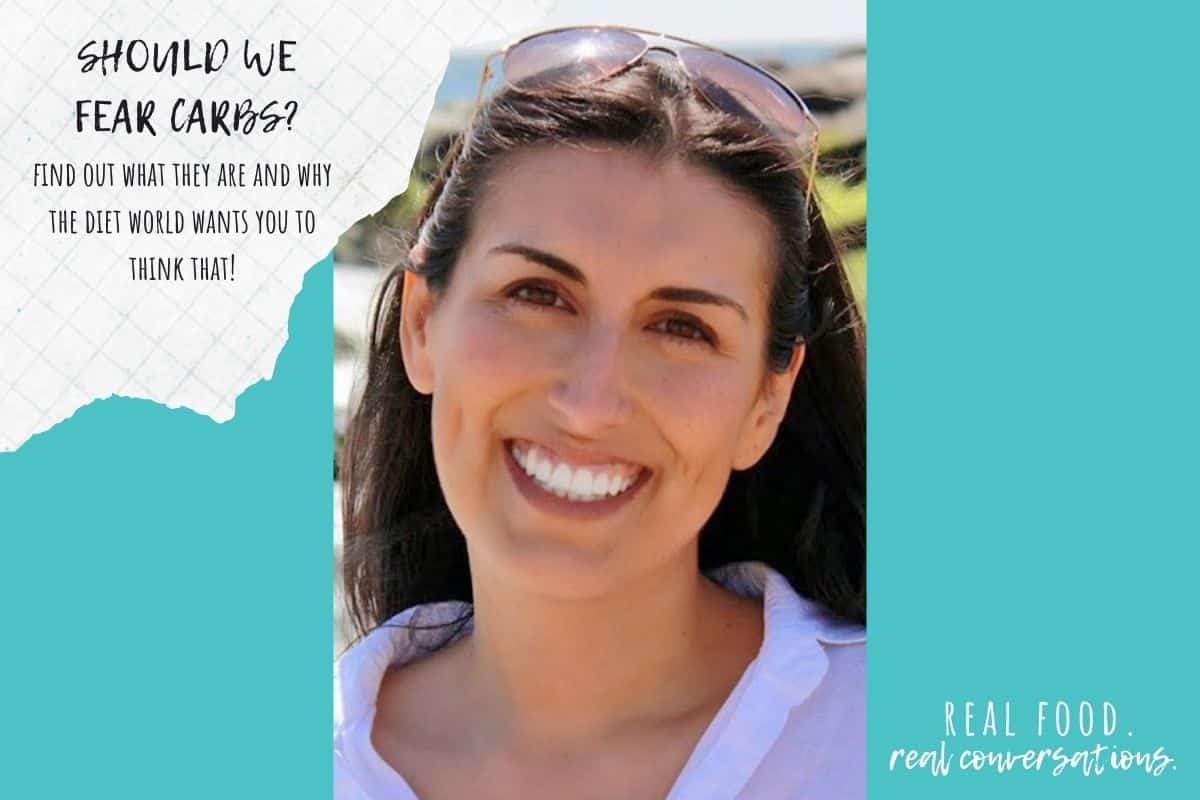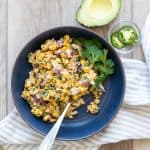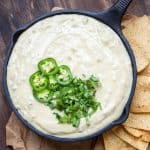Fear mongering on some types of carbohydrates is all over the diet world. Get the real answers on what they are and if we should eat them!

When it comes to carbs, the answer is simple. Our body needs them. But is there a difference in the type you eat and what does your body use them for? Find out the science and facts so you can make an educated decision.
Podcast: Play in new window | Download | Embed Subscribe now! Apple Podcasts | iHeartRadio | TuneIn | Deezer | RSS | More
Mary Ellen Valverde is a Certified Nutrition Specialist® and a Licensed Nutritionist who specializes in plant-based nutrition. She is passionate about empowering her clients to feel confident in creating sustainable and healthy habits that align with their values and health goals.
Mary Ellen originally moved to a vegan diet because of her love of animals but, during her transition, she noticed how much better she began to feel. After swapping processed foods and animal products for real, plant-based foods, her health greatly increased. After feeling energized from a plant-powered diet, Mary Ellen decided to pursue a master’s degree in Human Nutrition to truly understand the role food plays in our health.
Mary Ellen supports clients in shifting their relationship with food through one-on-one nutrition coaching as well as online resources which you can find on her website. You can also find her at @v.nutrition on Instagram where she shares recipes and plant-based nutrition tips.
Grab her FREE Vegan Made Easy guide here!
What are carbohydrates?
Carbohydrates are one of the macronutrients, nutrients we need in large amounts. You can read more about all the macronutrients in my discussion with Nurse Jenn.
Carbohydrates, or carbs, provide energy to the body. While the other macronutrients can also provide energy, carbs break down faster and are used as a main source of energy by some parts of our body, like the brain.
Unless you have certain health conditions, your body needs carbs in order to function at it's best.
Types of carbohydrates
There are 3 types of carbs: sugar, starches and fiber.
Sugars are short chain carbs and can easily be broken down for energy use, so they are used up quickly.
Starches are long chains of carbs and take longer to break down. This helps with long term energy use.
Fiber cannot be broken down by the body so it passes through undigested. It helps regulates the sugar in our body. Soluble fiber dissolves in water. Things like oatmeal, nuts, beans and fruit are soluble.
Non-soluble fiber can't be dissolved. It moves food through the digestive system and helps push it out. This is things like wheats, whole grains, brown rice, and legumes.
In foods, there are two types of carbs, simple or refined carbs and complex or whole carbs.
Simple carbs are processed to remove the natural fiber and nutrients in the food. Examples are table sugar, white bread, pastries, and fruit juices that have all the pulp taken out.
Complex carbs contain the fiber and nutrients. These are things like whole vegetables and fruits, legumes, and whole grains.
How does your body use carbohydrates?
Carbohydrates provide energy in the form of glucose. The pancreas produces insulin that carries the glucose into our cells to use as energy, then the leftover glucose in the blood is stored for later use.
If there is too much glucose build up, this raises blood glucose levels and may increase the chance of Type 2 diabetes.
Fat can also be used for energy but our bodies break down carbs faster than they break down fats, plus fats don't break down into glucose and glucose is a preferred energy source by many parts of our body.
Weight Loss and Carbohydrates
Everyone is so different, so one approach to weight loss isn't best for everyone. In general, when it comes to low carb diets, often the carbs that are cut are foods that are problematic anyway, such as simple carbs.
Since simple carbs break down quickly, so they spike your glucose levels which leads to a sugar high and then crash.
In turn, your body sends signals of hunger, especially cravings for things like those simple carbs that were omitted and can lead to binging.
So instead of looking at it as omitting carbs altogether, simply replacing simple carbs with more nutrient dense complex carbs may lead to better long term success. As can simply eating a smaller portion size.
Another thing to consider is that simple carbs can cause inflammation. So when you omit them, you are also lowering your inflammation which can make it seem like you are losing weight.
The Fear of Carbs
The diet world today has many thoughts about low carb diets and success with weight loss. The fear they instill in people is often based off of information from unlicensed professionals and not backed by science.
While some people with certain medical conditions may need a lower carb diet, most people need carbs for adequate energy. Focusing on the right types of carbs is more important than not eating carbs in general.
Many of the results you see online are based on fake photos and sold by people that are working out of their scope of practice.
It's not all or nothing thing
Eating overall should never be restricted by rules or all or nothing approaches. Diet culture can create a feeling of needing to be 100% in one approach in order to achieve a goal.
But eating can be for both your body and mind. Our body needs nutrients but our mind also needs to feel happy. And sometimes those refined carbs make you happy.
The goal of eating mostly whole foods, lots of plants, and a varied diet with some things you love mixed in when you crave them can bring overall wellness for both the body and mind.
Wellness is not simply a diet, but a lifestyle you create.
When we make rules for ourselves about what to and what not to eat, we are hurting our mental health.
Don't forget to grab May Ellen's FREE Vegan Made Easy guide here!

PS- If you liked this episode of Real Food Real Conversations, please subscribe and leave me a review!
And tag me on Instagram whenever you're listening! I reply to all my messages!














Questions or comments? Let me know below!